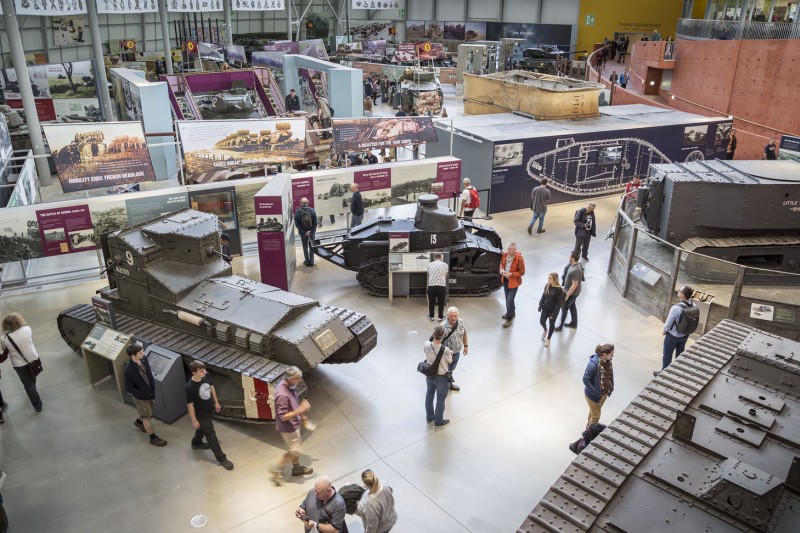Bournemouth University has been working with The Tank Museum in Dorset for over a decade to find sustainable ways to preserve historical tanks to extend the design life so future generations can continue to enjoy and learn from them.
Zulfiqar Khan, Professor of Design Engineering and Computing at BU used technological and engineering research to develop new conservation facilities, install humidity and temperature sensors, live-corrosion condition monitoring and implemented a control environment.
Reversing the effects of the structural degradation is a key priority for the fleet of 300 military vehicles because they have significant historical biographies which are examples of British engineering heritage.
The different materials, types of systems and mechanical failures that occurred in the tanks were compared to explore what control measures could be put in place to reverse the failed mechanisms.

A decade of research from BU played an important role in enabling the Museum to secure £2.5m of funding from the National Lottery Heritage Fund to invest in the Vehicle Conservation Centre, which provides a controlled environment and help slow down deterioration in these vehicles.
Bournemouth University Professor Zulfiqar Khan said, “I started work with the Tank Museum in 2009 because I wanted to develop a sustainable method of conserving large military vehicles in the museum.
“The research goes beyond just preserving tanks because it can be used in much wider industries to help create sustainable solutions. It has played an important role in helping people to better understand and explore British Heritage.
“Through our industry collaboration we have forged a platform for research-informed education and have supported a Women in Engineering initiative by encouraging female engineers to participate in impactful research at BU.”
The research found is also adaptable to designing other solutions such as for high value structures of strategic significance, interacting systems, process equipment and machinery, and energy efficient components which can be used in automotive and aerospace industries.
Director of The Tank Museum Richard Smith added, “Before Bournemouth University started working with us we had no research to help us protect these historical works of engineering. Without data it was impossible to make evidence-based decisions about the best way to preserve the tanks.
“But now with over ten years’ worth of research from the BU team, we are looking forward to the future and making better informed decisions on how to look after the tanks for future generations to come and see.”
The research has led to collaboration with the Beaulieu National Motor Museum to develop a framework for sustainable conservation of other historic vehicles.
For more information about BU work with The Tank Museum, watch the Bournemouth University and the Tank Museum video.



